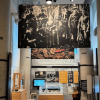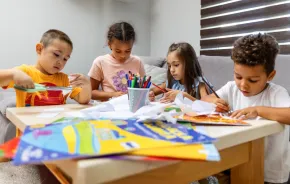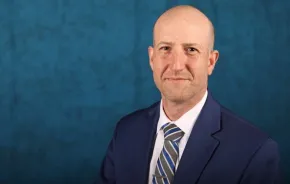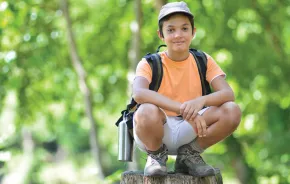
Editor's note: This article was sponsored by the Bill & Melinda Gates Foundation.
“Say it loud, say it clear, equal education here” is the rallying cry of Black & Brown Minds Matter, an equitable education advocacy movement launched in protest — literally — by local high school students at the outset of the current school year. Kidist Habte, its co-founder, is a 16-year-old junior at Rainier Beach High School. She helped conceive of and organize the group’s inaugural Sept. 4 rally to raise awareness of funding inequities across the district, many of which are caused by the under-projection of school enrollment numbers that results year after year in budget cuts and under-resourcing of Seattle Public Schools serving students in South Seattle.
For her meaningful work to ensure that all schools in the district are equitably funded, Habte is being recognized as one of 100 local youth changemakers featured in the Gates Foundation Discovery Center’s “We the Future” exhibit.
We caught up with Habte to learn more about Black & Brown Minds Matter.
How did the Black & Brown Minds Matter movement evolve?
I came up with the idea during the last week of school last year. A few friends and I were talking about the lack of funding at our school and how we feel very unprepared for the real world, and how we see that there’s such an obvious disproportion in resources available for predominantly Black schools and low-income schools versus predominantly white schools and wealthier schools. Our school has been fighting against inequitable funding for a couple of decades now; it was almost shut down in 2003 due to lack of resources and low attendance rates. Parents and the staff and community members had to fight very hard for our school to become what it is now. We’ve been improving for the last seven years; I talk a lot with the teachers at my school and they’ve shown me the progress our school has been making, both academically and population-wise.
We were frustrated. Why is it that we’ve been fighting for so long yet we haven’t been heard? That’s when the idea of having a protest on the first day of school came to mind, because the idea of having a walkout on the first day of school was supposed to be a statement to show that we refused to start the new school year with the same lack of resources. Then, after the protest, we thought, this can’t be a one-time thing. It has to be a continuous effort and we have to continue to fight and bring awareness into this issue. We started an Instagram page (@black.brown.minds.matter) so we could reach out to a larger audience and connect with organizers at other schools. So, that’s where the idea of Black & Brown Minds Matter came from.
What are the core demands of your platform?
We want full years of courses in all core subjects, because a lot of students right now at Rainier Beach only have half a semester of history class. The second one is having a culturally responsive curriculum and staff. There needs to be a stable number of teachers of color. For me personally, the first time I had a Black teacher was just last year. Growing up, it was very hard to see all these teachers who didn’t look like me; it instilled a message, “Oh, you’re not capable of being a teacher.” You can’t only have a culturally responsive curriculum — behind those curriculums there has to be a culturally responsive staff. People who understand us, our backgrounds and what it is exactly that we’re asking for.
The third one is smaller class sizes. A lot of the teachers at our school are teaching classes well above the legal number. We don’t have enough teachers. There are a lot of students in the class and a lot of people asking for help, and there is only one teacher. You can only help so many students at a time — that disconnects the essential connection that a student and teacher need to have in order for that student to be successful in that subject.
Do you have any words of wisdom for other young people who are trying to figure out how to make a difference?
I’ve always known that I wanted to be an advocate for other people, because growing up I didn't really have an advocate myself. But no one is going to fight for your future as much as you’re willing to fight for your own future. That is in your own hands.
So, it’s about finding what it is you’re passionate about and taking that and saying, what change is it that I’m trying to make? What message is it that I’m trying to get out to the world? After you have come up with that, as soon as you discover what it is that you want to do, everything falls into place. You find your right resources. Just take it very slow: I think sometimes activism tends to be rushed and our masterpiece isn’t as effective or efficient as it can be.
What advice do you have for parents when it comes to supporting their children to become changemakers?
Use words of empowerment: A lot of times we think about materialistic things, but a kind word, a kind phrase — “Hey, I see what you’re doing and I’m so proud of you” — that could mean the world to a kid. And just taking those little things into consideration and encouraging your child to be someone who can look at every angle of a situation, not just from their own perspective but from someone else’s. And teach your child that it’s okay when people don’t agree with you — just listen and try to educate them.












